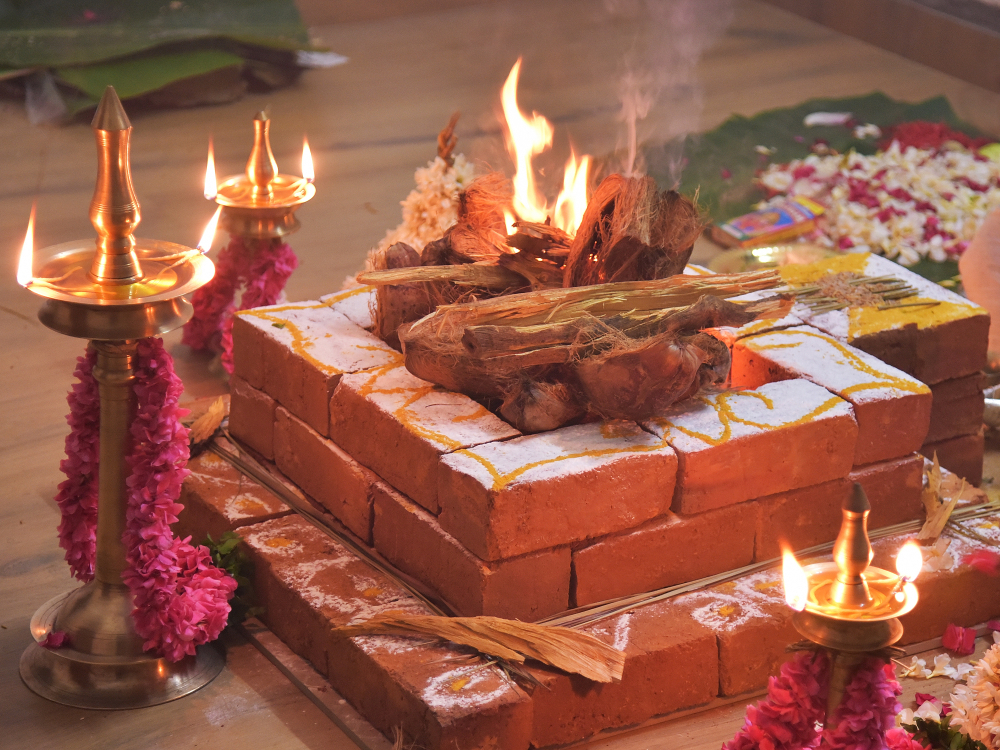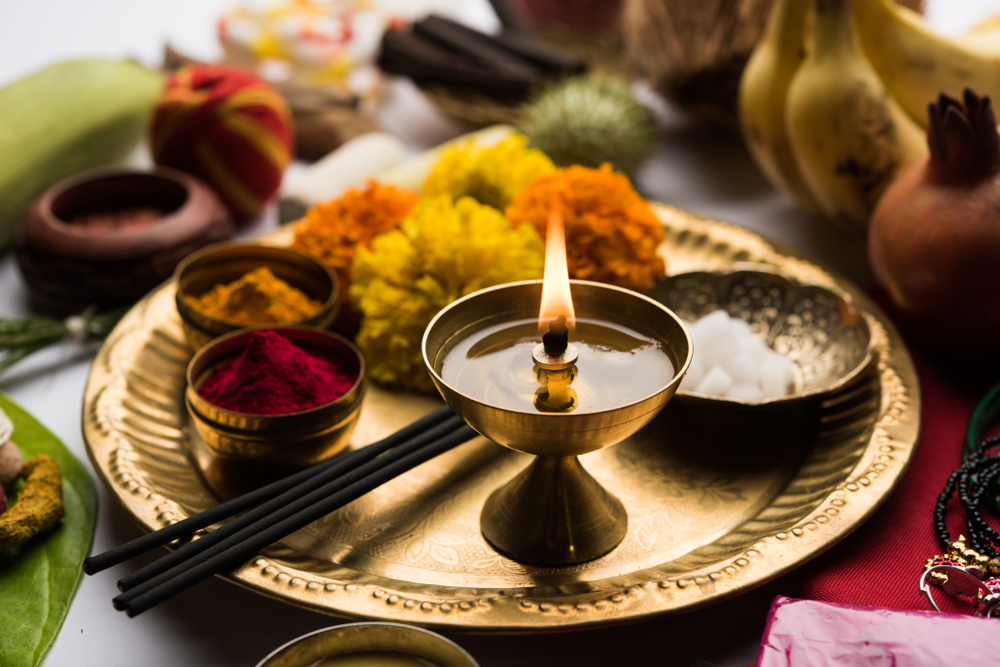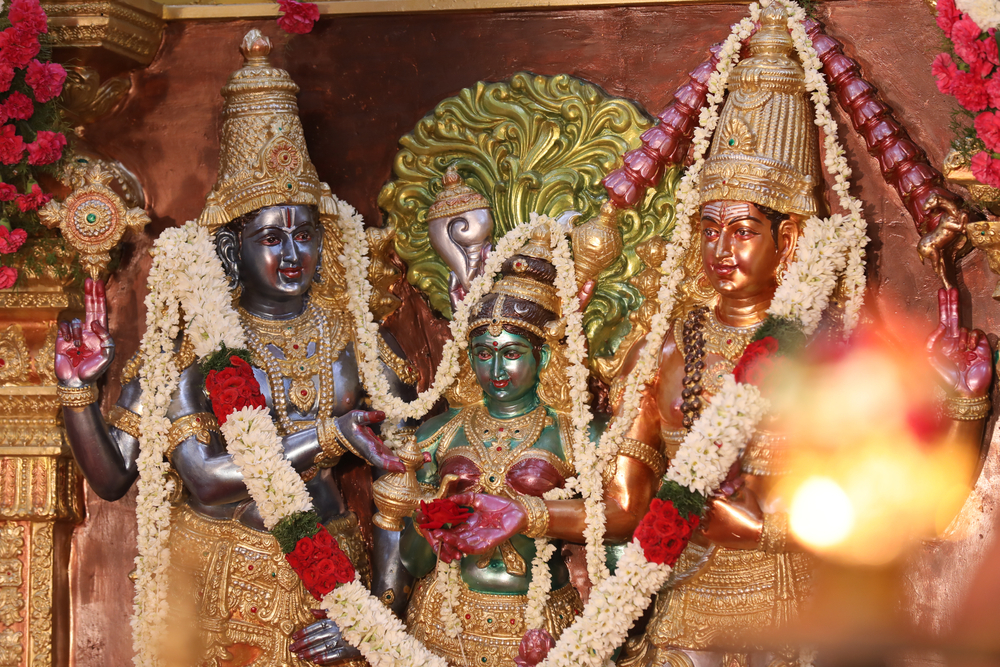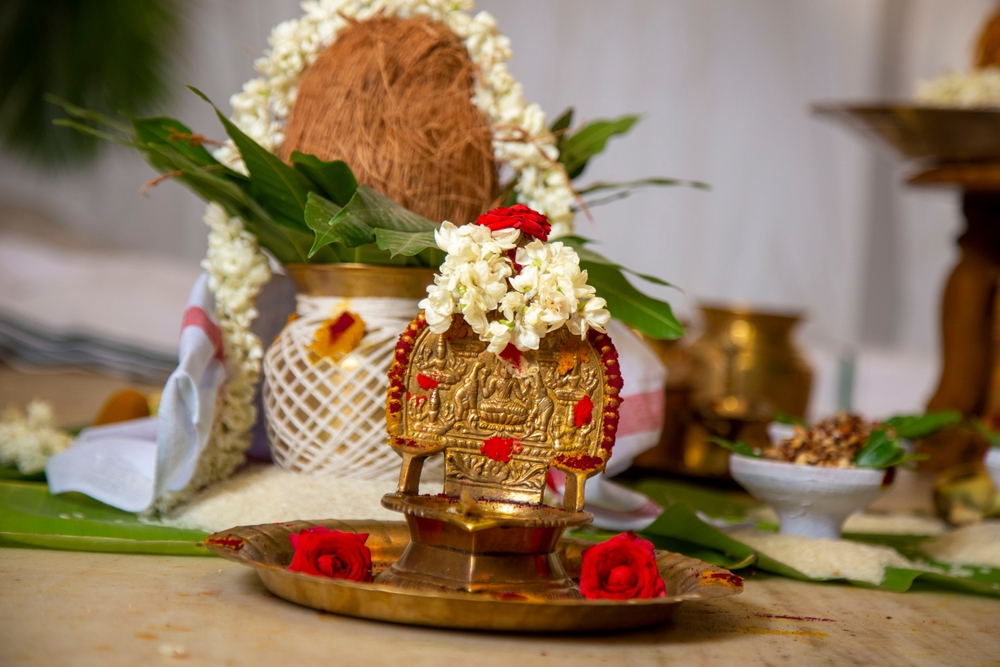Priest Services
Homams
Rituals such as homam and yagnas (fire ceremonies) are prescribed in the Vedas for acquiring merit/virtue or seeking divine grace/blessing. Some of the homams that are frequently performed by priests in temples are: Ganapati Homam, Chandi Homam, Sudarshana Homam, Paashupata Homam, Mrityunjaya Homam, Ayush Homam. Often, one feels cleansed and rejuvenated after performing a fire ritual. The gases that come out of a homa-kunda are believed to revitalize the atmosphere and environment around us and promote wellbeing.
Pooja
Pooja is the worship of the divine with devotion and love. The traditional 16-step puja is called the Shodasha upachara Puja in Sanskrit. It can be performed for an Ishta Devata as a spiritual practice (sadhana) for fostering discipline and devotion. The main purpose of Pooja is to elevate the devotee to a higher level of consciousness by uplifting the five senses and the mind to promote good thoughts and actions.
Kalyanam
Kalyana Utsavam is a special ritual where we derive pleasure in conducting the wedding for the Lord Himself/Herself. It is an extension of the “Ishta Devata” bhakti where in addition to the “shodasha upachara” that we perform daily, we extend the same concept to an elaborate “Kalyana Utsavam“. The Lord’s consort is taken as a metaphor for the “Jivatma“, the individual Self. The Lord is the paramatma, the total Self. It is often humorously mentioned that there is one relationship that the Lord misses. Since the Lord is the “causeless cause”, he has no cause and hence no parents. When we perform a Kalyana Utsavam for the Lord, in effect, the Lord gets to enjoy the role of being our child! Kalyana Utsavams are blissful events to participate in or witness.
Abhishekams
Abhishekam is a ceremonial bath of the deities with the chanting of mantras. “Alankarapriyo Vishnuh, Abhishekapriyah Sivah–Lord Vishnu is very fond of Alankara (fine dress, beautiful ornaments, etc.); Siva is fond of Abhisheka.” By offering water, milk, ghee, yogurt, honey, coconut water, Panchamrita, etc.., to the Lord with love, and focusing on the divine instead of the self, selfishness reduces and joy increases. The external Abhisheka with various objects promotes the growth of devotion and adoration for Lord that eventually leads to internal Abhisheka with pure abundant flow of love from one’s heart.
Others
Hindu Traditions and practices vary from region to region within India while the main principles of worship remain the same. Our priests strive to accommodate special needs of the devotees after due discussion and understanding.





